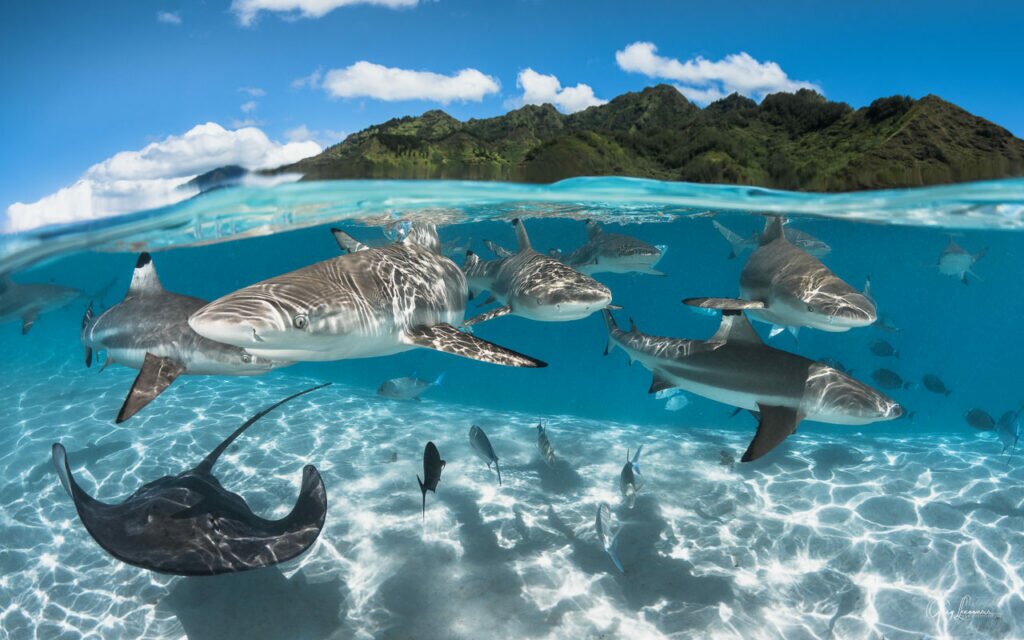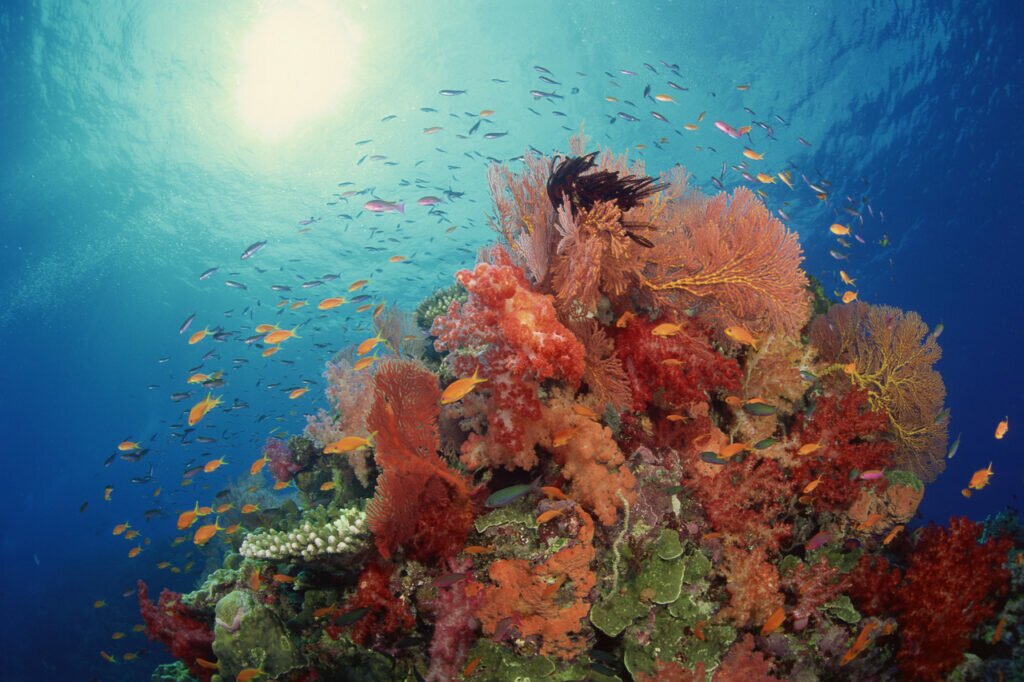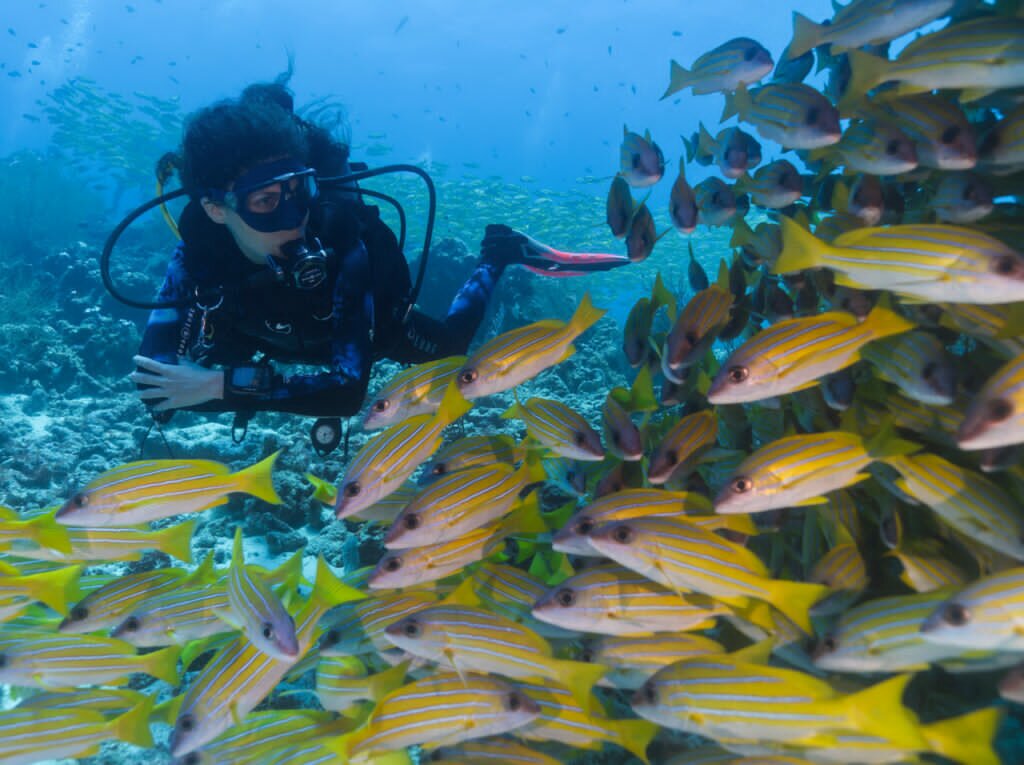Not just as a diver; snorkelers, surfers, kayakers, sailors and any other aquatic athletes. If you are an ocean passionate or your favourite activities take place in it, you have to read this.
Why CO2 matters
The latest IPCC report concluded that greenhouse gas emissions (GHG) from human activities are responsible for changing the climate in unprecedented and in some cases irreversible ways.
The last time the atmospheric CO2 amounts were this high was more than 3 million years ago, when temperature was 2°–3°C higher than during the pre-industrial era, and sea level was 15–25 meters higher than today. (NOAA and the American Meteorological Society)

How does CO2 excess affect The Ocean
While Ocean Acidification and Climate Change look like completely different problems, they are actually closely related as they share the same root cause: increased CO2 emissions.
The ocean has the capacity to absorb CO2 from the environment, like a sponge. The current problem is that it is reaching saturation levels.
When CO2 dissolves in seawater, it undergoes a series of chemical reactions. The pH of the sea water is lowered and there is an increase in acidity. This phenomenon is known as Ocean Acidification and is a direct consequence of increasing CO2 levels in the atmosphere.

As CO2 emissions rise, Ocean Acidification also increases
There has already been a 26% increase in ocean acidity since pre-industrial times, which is directly due to human activities. This is leading to significant changes in the biology, chemistry and structure of marine ecosystems, affecting the biodiversity it supports.
A major concern is that Ocean Acidification leads to a decrease in the concentration of carbonate ions, which are the building blocks of the shells of many marine species, such as crabs, mussels and oysters. These species are the basis of the food chain, so everything else would be affected, including our food supply.
These carbonate ions also help create the main habitat structure for most marine life: corals.
It is predicted that by the end of this century, 70% of all cold-water corals in the entire ocean will be surrounded by seawater that is acidic enough to dissolve their coral structure.

Fins on the ground — Divers must act on land to protect the ocean
At the current rate, ocean acidity is expected to increase by 170% by the end of this century. This is 10 times faster than any acidification in the ocean for over 55 million years.
We must drastically reduce our CO2 emissions if we are to maintain a healthy ocean and a planet suitable for our survival.
Ocean Acidification is a problem that can only be corrected from land, by reducing our CO2 emissions.

There is a need to educate, especially the younger generation, not only about the current state of the underwater world, but also about the solutions already being implemented across Europe to address this challenge, including:
- Lifestyle changes that we can all apply on a daily basis to reduce our Carbon Footprint:
Have you and your family have set goals to reduce your carbon footprint? Start by working out how much you can do in the next five coming years. Then review.
- Sustainable services, products and initiatives that already exist in Europe:
Are you aware of what companies are working in a sustainable way?
- Circular economy and CSV:
How much you can play a role in circular economy? Is your company setting goals to work on Corporate Shared Values ?
- Policies to create environmental change:
Become active on lobbying your politicians to do work on this matters.
- Partnerships to achieve the goal:
What UN SDGs can be worked out in your local communities ?
- Scientific Research on Climate Change and environmental threats:
Support scientific studies and educate yourself from reliable sources. Here is a Podcast we can recommend: THE CLIMATE QUESTION, by the BBC.

It is crucial that divers, industries, governments, citizens and future generations work together to protect our natural resources. Our Oceans represent 70% of them.
